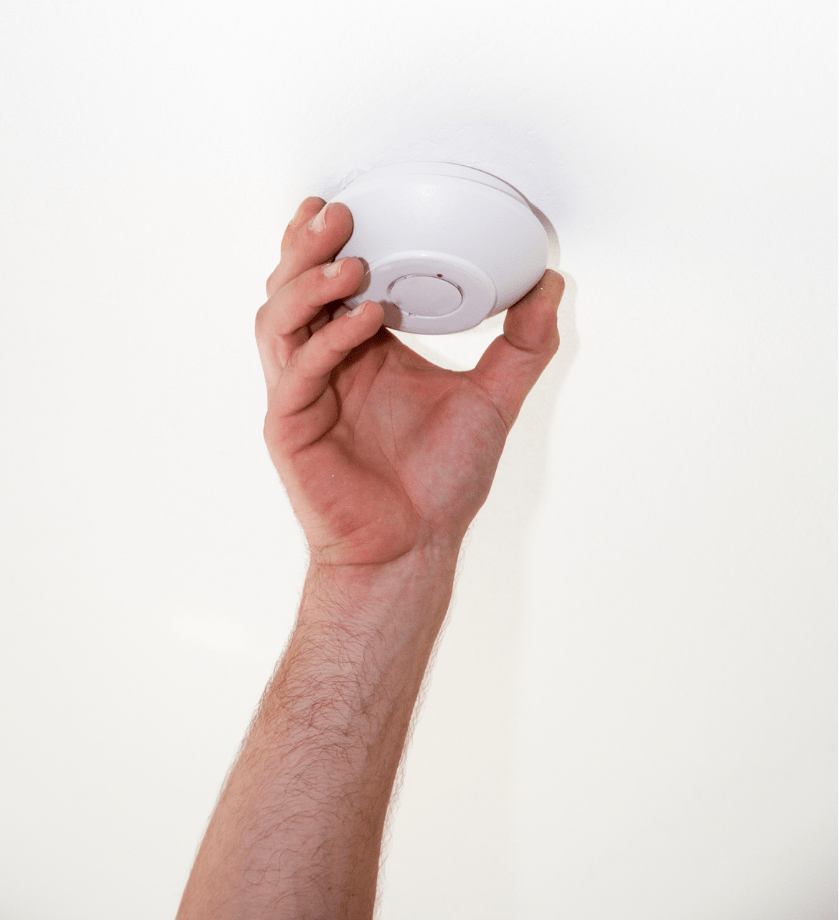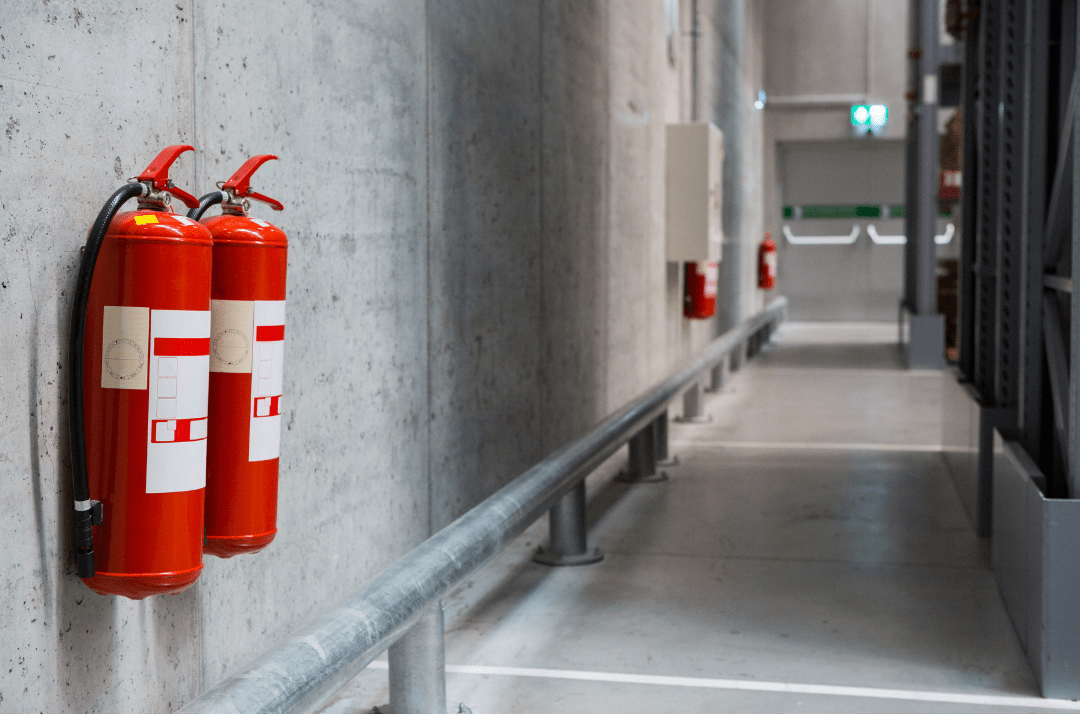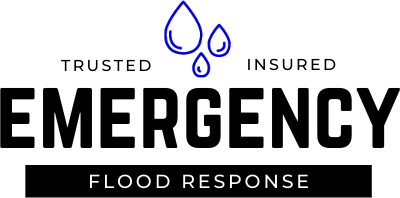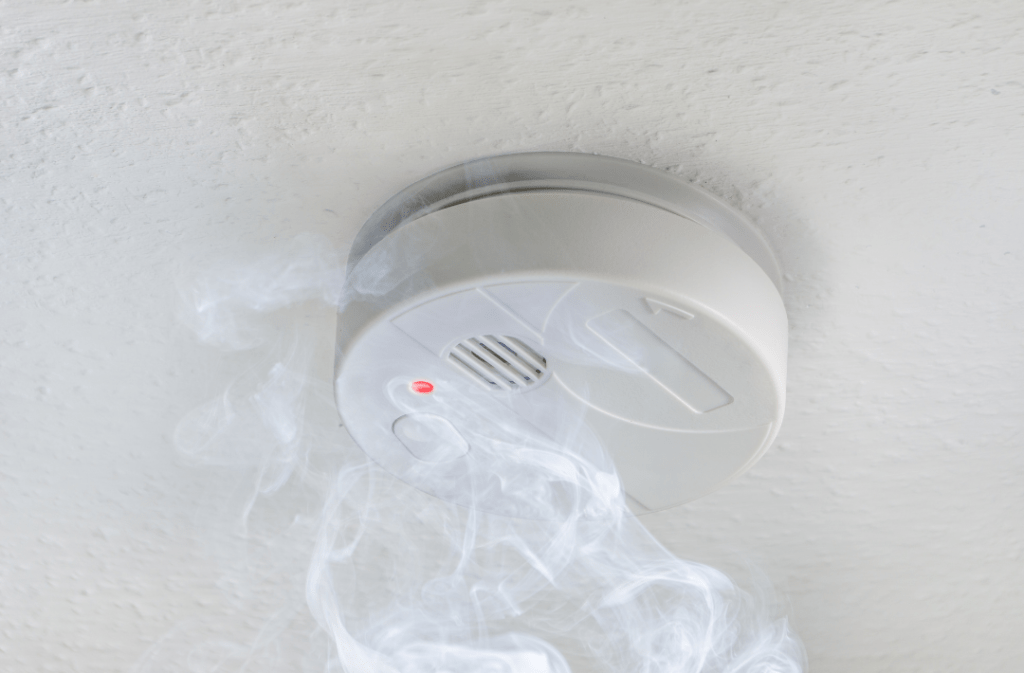House fires have a major impact on our lives and livelihood – one 2016 study reported that house fires are responsible for a loss of more than $7 billion to the Canadian economy. They affect everything, from life expectancy to the structure of homes. While you can’t control every factor, there’s a lot you can do to greatly reduce the risk of damage, injury, and loss from flames and smoke. Follow these tips to prevent house fires and fire damage!
Check Your Detectors
 Fire and smoke detectors are your first defence, and even carbon monoxide detectors can help! The sensors inside these devices detect when smoke and heat enter, sounding an alarm in response. While it keeps you and your family safe, it also helps you catch a fire problem before it becomes a home-wide emergency. Whether it’s battery-powered or wired into your home, test the alarm once a month by pressing the button and keeping it down; it should sound in response. Most detectors have a button on the face; if there is no button on the ones in your home, they are likely outdated, and you must replace them ASAP. In fact, you should replace all the smoke alarms in your home every ten years. The alarm should also let you know when the batteries in smoke alarms are low by sounding an annoying chirp. Don’t ignore it!
Fire and smoke detectors are your first defence, and even carbon monoxide detectors can help! The sensors inside these devices detect when smoke and heat enter, sounding an alarm in response. While it keeps you and your family safe, it also helps you catch a fire problem before it becomes a home-wide emergency. Whether it’s battery-powered or wired into your home, test the alarm once a month by pressing the button and keeping it down; it should sound in response. Most detectors have a button on the face; if there is no button on the ones in your home, they are likely outdated, and you must replace them ASAP. In fact, you should replace all the smoke alarms in your home every ten years. The alarm should also let you know when the batteries in smoke alarms are low by sounding an annoying chirp. Don’t ignore it!
Make Sure Carbon Monoxide Detectors Are Working
Carbon monoxide (CO) is an odourless gas released when carbon materials are burned for fuel. If you have any stoves that use wood, natural gas, coal, gasoline, or heating oil, CO can get into your home – it’s a byproduct of these fuels not burning fully. While you know it as a threat in and of itself, it’s also a sign of issues that could cause damage to your home. Consider getting a combined carbon monoxide and smoke detector that senses heat, smoke, and CO. It cuts down on installation and maintenance times in ways that could save your life!
Clean Your Chimney
If you use a fireplace for warmth in winter, have your chimney professionally cleaned and inspected twice a year. Professionals can clear out the creosote – a tarry byproduct of burning plant-derived materials – that builds up in your chimney flue over time. Creosote can ignite inside the chimney from nothing more than an errant spark or high heat from the flame below, and fires that start here can spread rapidly and cause a lot of damage. To slow creosote build-up down, keep cardboard, trash, and “green” wood out of your fireplace. Never use gasoline, starter fluid, and other flammable liquids to get your fire going indoors.
Keep A Fire Extinguisher Handy
 Having easily accessible portable fire extinguishers is the best way to stop the spread of a fire that has just broken out. While many fires stay contained to the site of origin, the most destructive fires are the ones given time to spread. Experts suggest that homes have three extinguishers: the kitchen, basement, and garage. Everyone in the house should know where the extinguishers are, and the labels should always face outward to be visible. You should maintain your extinguishers and learn their lifespan – it can range from 5 to 15 years.
Having easily accessible portable fire extinguishers is the best way to stop the spread of a fire that has just broken out. While many fires stay contained to the site of origin, the most destructive fires are the ones given time to spread. Experts suggest that homes have three extinguishers: the kitchen, basement, and garage. Everyone in the house should know where the extinguishers are, and the labels should always face outward to be visible. You should maintain your extinguishers and learn their lifespan – it can range from 5 to 15 years.
Close Your Doors At Night
House fires spread faster when there are fewer barriers in the way. While it sounds simple, closing your bedroom doors at night is a form of passive fire protection that could buy you and your home enough time to prevent fire damage and a threat to your life.

